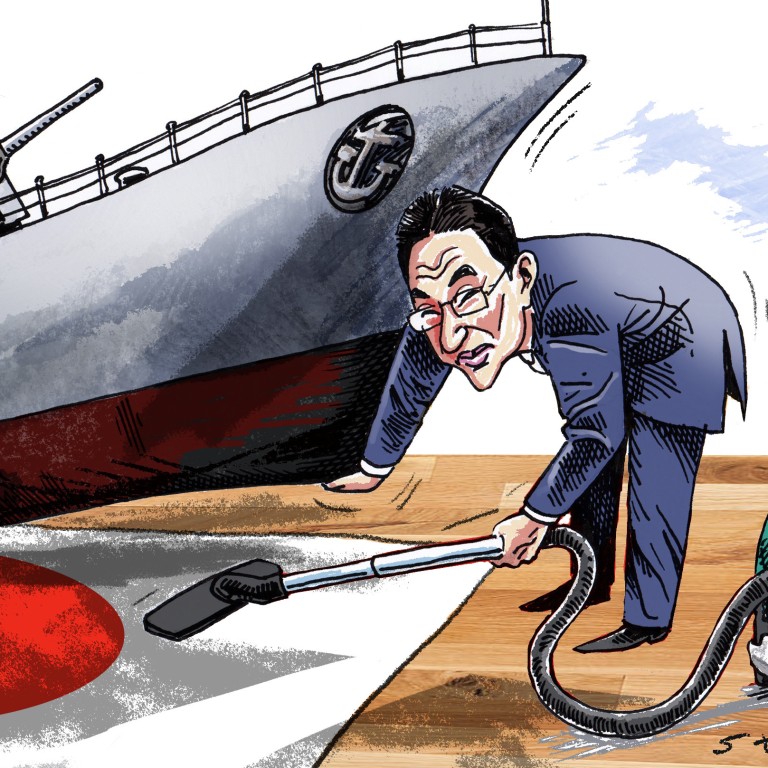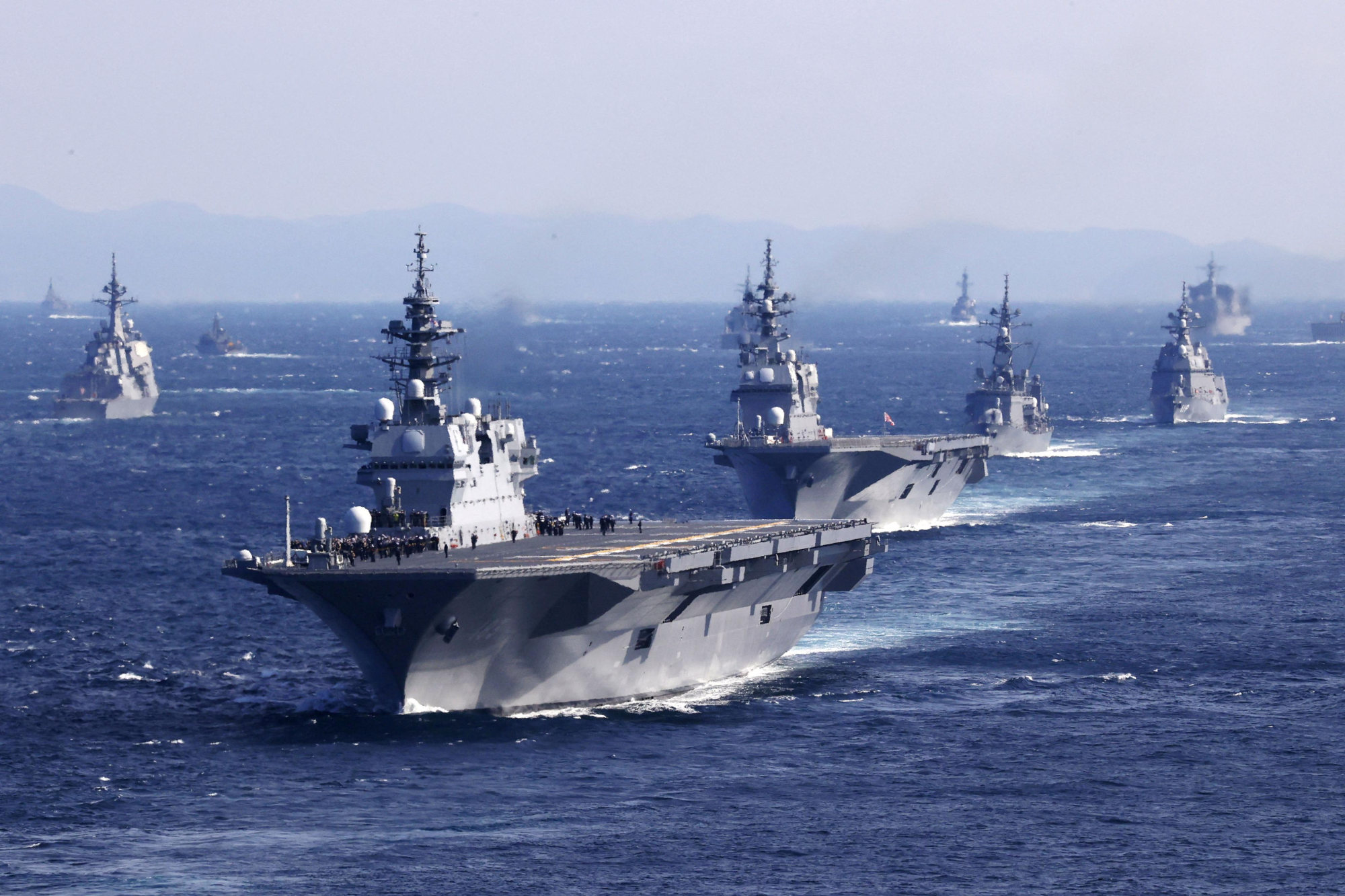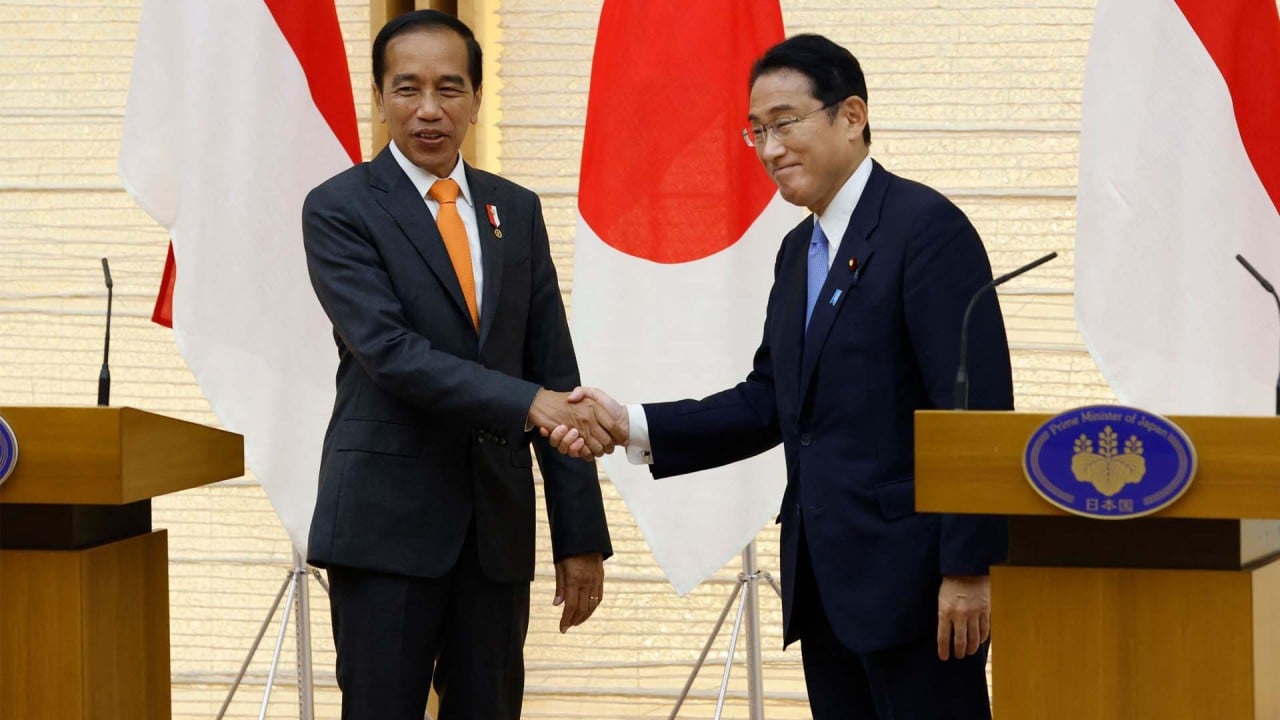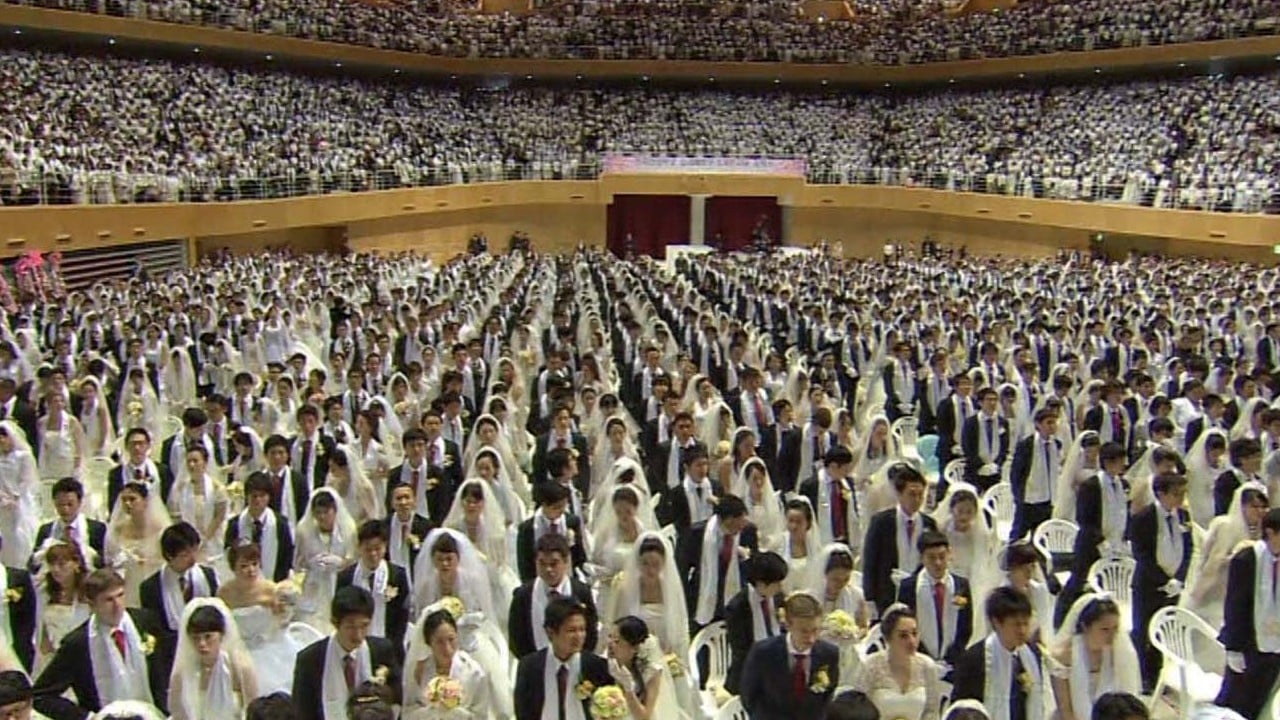
For Japan to be a regional security leader, it must first clean house
- As geopolitical tensions reshape Asia’s security architecture, Japan is angling for a greater role, with America’s blessing
- But first, it must settle its domestic issues, from resistance to militarisation, to the Unification Church political crisis and structural economic challenges
The fleet review was the first step towards Japan’s new ambitious goals, mustering 38 vessels, 18 of them from allied and friendly nations. Among them were not only Japan’s traditional allies, but notably also participants such as India, Singapore, Thailand and South Korea, highlighting that Seoul and Tokyo had chosen practical considerations over traditional, deep-running tensions.
While this signifies a growing desire, if born of necessity, to cooperate on security issues in an increasingly unstable international security environment, Beijing flatly refused to participate.

In the past, the United States regarded attempts by Japan to forge a leading role in Asia with suspicion. But as China continues to gain military, economic and diplomatic ground, the US seems, for the first time, to welcome a sharing of its security burden for the Asia-Pacific.
Tokyo is also deepening its ties with Asean countries when it comes to rule of law and security. Japan stepped up in 2016 when it unveiled its “Vientiane Vision”, a cooperative pact to strengthen maritime security that has been described as the Association of Southeast Asian Nations’ first defence initiative.
While Tokyo’s recent posturing is a signal to China and North Korea, Japan has important domestic hurdles to overcome if its new-found rhetoric is to have the desired effect. Tokyo might find out that it is easier to challenge a paradigm on an international level than to do so at home. While US unreliability during the Trump administration and the Russian invasion of Ukraine did much to strengthen the case for boosting national defences among the Japanese public, militarisation remains controversial.
Church or cult? Abe murder spotlights South Korea’s ‘pseudo-religious’ groups
Unfortunately, the timing of the political squabble over the church could hardly have come at a more dangerous time, as it is forcing the prime minister to redirect his attention to domestic issues rather than allowing a clear focus on geostrategic and pressing defence questions – as well as sparking fears that the investigation could be used to purge political opponents.
This is more than likely to affect Japan’s defence industry, which is struggling to keep its head above water, only generating razor-thin profit margins on investments due to high competition and little international experience.
Despite this doom and gloom, Japan could still make good on its rhetoric. Yet time is a factor as the international environment is undergoing rapid fundamental shifts. Japan must not get bogged down by the rigidity of “politics as usual” on the domestic front if it has any hopes for a regional security role. But before it can become a pillar of the international order, Japan must first clean house.
James Borton is a senior fellow at Johns Hopkins/SAIS Foreign Policy Institute and the author of Dispatches from the South China Sea: Navigating to Common Ground



